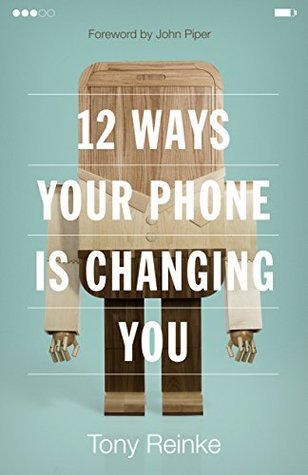More on this book
Community
Kindle Notes & Highlights
To remember God is to satisfy the soul and to recalibrate our always-shifting perception of reality. But to forget God is to forsake God. This spiritual plague of forgetfulness is not physical forgetfulness or mental dementia. Spiritual forgetting is sin, a sin that plagues youth19 and infests every demographic.
Scripture makes life focus possible in the digital age, and it does so when Jesus boils down the purpose and aim of our lives into two goals: treasure God with your whole being, and then pour out your God-centered joy in love for others.1 On these two commands all other smartphone laws depend.
Aimlessly flicking through feeds and images for hours, we feel that we are in control of our devices, when we are really puppets being controlled by a lucrative industry.
We talk more about God than we talk to him. Our hearts are more interested in following empty patterns of worship than encountering the Spirit. Our worship on Sunday seems flat, but our week is filled with an endless quest for Christian advice to fix what we know is wrong. We seek a mechanical relationship with God, searching for new techniques to fill the spiritual void in our lives. Signs such as these reveal how technology degrades our priorities. But worship calls for redirection in our lives.
Apps can help me stay focused on my Bible reading plans and help me organize my prayer life, but no app can breathe life into my communion with God.
Our bondage to technology is measured by our inability to thoughtfully criticize ourselves. What shall it profit a man if he gains all the latest digital devices and all of the techniques of touch-screen mastery but loses his own soul?
In an act of courageous self-criticism, I must ask three questions: Ends: Do my smartphone behaviors move me toward God or away from him? Influence: Do my smartphone behaviors edify me and others, or do they build nothing of lasting value? Servitude: Do my smartphone behaviors expose my freedom in Christ or my bondage to technique?
We pay more attention to our phones than we do to the third person of the Trinity, but he cares for us more than we care for ourselves.
If I’m a social-media junkie, my lack of self-control feeds the social-media addiction in you. And the more I text and tweet and Snapchat, the more I drag you and others into the digital vortex of reciprocating obligation.
Even something as simple as pulling out your smartphone in a crowd is “the new yawn”—everyone else around you will feel the immediate pull and lure to check their own phones.
we buy our phones with the unquestioned assumption that anything our devices can do they should do. Or, to say this more personally, we tend to fill our devices with a lot of nonessential apps.
Guard your morning disciplines and evening sleep patterns by using phone settings to mute notifications between one hour before bedtime to a time when you can reasonably expect to be finished with personal disciplines in the morning (9 p.m. to 7 a.m. for me).
At strategic moments in life, digitally detox your life and recalibrate your ultimate priorities. Step away from social media for frequent strategic stoppages (each morning), digital Sabbaths (one day offline each week), and digital sabbaticals (two two-week stoppages each year).
Solomon warned us to not divorce our minds from our whole bodies, the very temptation of the touch-screen age.
And do the same thing spiritually. Change your smartphone routines and see what happens to your devotional life. Are your mornings more fruitful and focused? What happens at church when you leave your phone in the car?
Toward the end of my research for this book, I asked John Piper how he uses technology in fulfilling the purpose and calling of his life, and he was quick to gush over all the ways his apps and Bible software have fed his soul over the years. At the end, he looked down at his laptop, his iPad, and his iPhone, all sitting on the table, and he said, “I could almost come to tears over how precious they are to me.” Yes, they are glowing tools made mostly by men and women who are not submitted to God, he reiterated, and they are tools that open up his life to a thousand convenient temptations, but
...more
When we use our smartphones rightly, their shining screens radiate with the treasure of God’s glory in Christ, and in that glory-glow, we get a sneak peek into a greater age to come.
Christ reigns sovereignly over all technology, but all technology has not yet been subjected to his moral will.
Our greatest need in the digital age is to behold the glory of the unseen Christ in the faint blue glow of our pixelated Bibles, by faith.
And we are called to live smartphone smart as we, in Christ, move toward a resplendent city full of glory and innovation that will blur our smartphones into a foggy memory.


